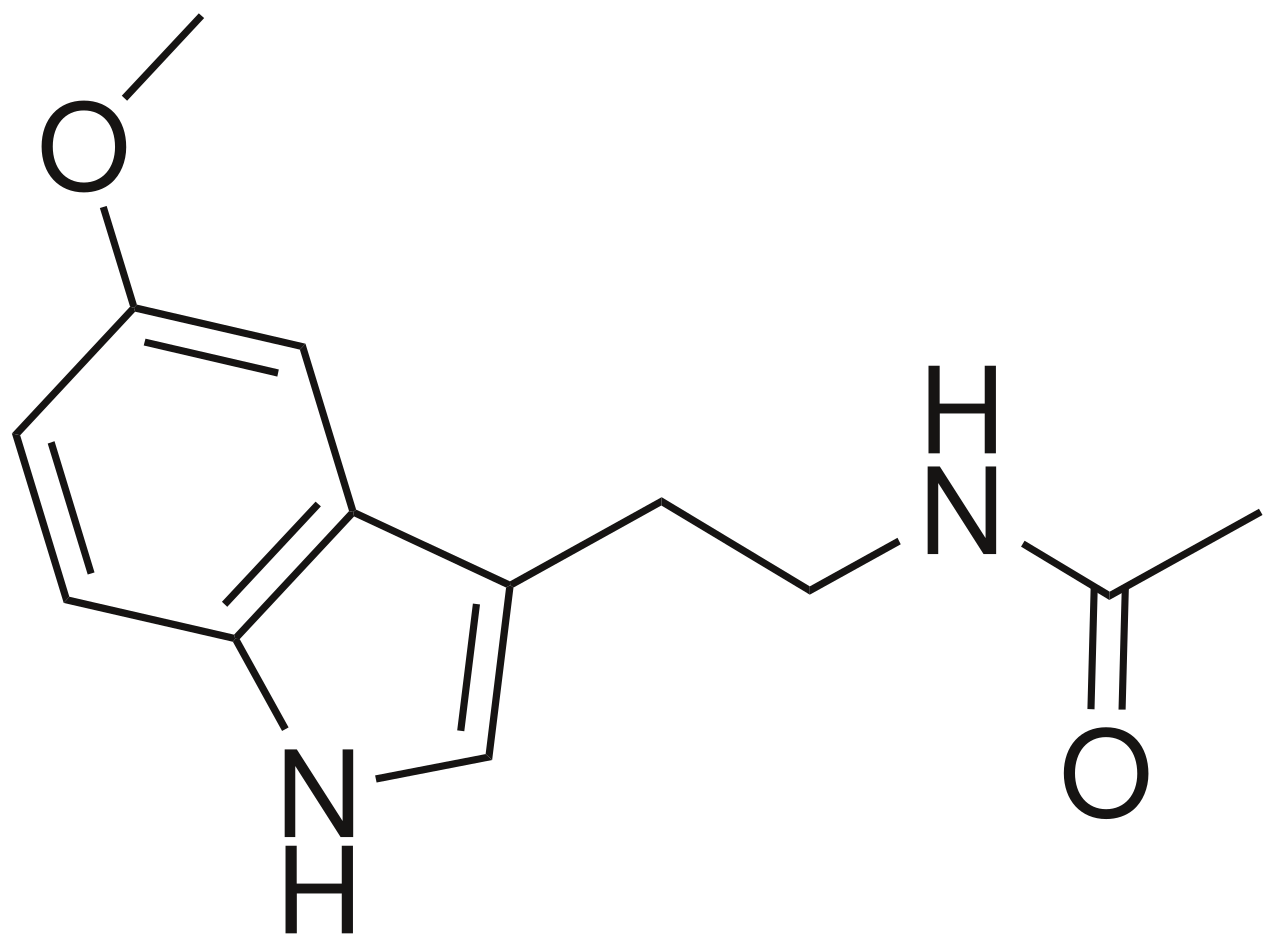Melatonin 101
Melatonin is a naturally occurring hormone that plays a critical role in regulating sleep-wake cycles, also known as circadian rhythms. It is produced by the pineal gland in the brain, primarily in response to darkness, and helps signal the body that it is time to prepare for sleep. Melatonin is also available in supplement form and is commonly used to address sleep disorders and disturbances.
Biological Function
Melatonin production is closely linked to the light-dark cycle. During the day, light exposure suppresses melatonin production, keeping levels low. As darkness falls, melatonin secretion increases, reaching peak levels during the night. This cycle helps synchronize the body’s internal clock with external environmental cues.
Melatonin impacts a variety of biological processes, including:
- Sleep Regulation: Melatonin promotes sleep by lowering core body temperature and fostering relaxation.
- Antioxidant Properties: It acts as a powerful antioxidant, protecting cells from oxidative damage.
- Immune Function: Melatonin supports immune system health, aiding in the body’s defense against pathogens.
- Reproductive Health: In some animals, melatonin influences reproductive cycles in response to seasonal changes.
Production and Release
The pineal gland produces melatonin from serotonin, a neurotransmitter derived from the amino acid tryptophan. This process is governed by the suprachiasmatic nucleus (SCN) of the hypothalamus, which acts as the body’s master circadian clock.
Factors influencing melatonin production include:
- Light Exposure: Blue light, particularly from electronic devices, can suppress melatonin levels.
- Age: Melatonin production typically declines with age, contributing to sleep disturbances in older adults.
Medical and Therapeutic Use
Sleep Disorders
Melatonin is commonly used to treat conditions such as:
- Insomnia: Especially in older adults and those with delayed sleep phase disorder.
- Jet Lag: Helps resynchronize the body’s internal clock when traveling across time zones.
- Shift Work Sleep Disorder: Supports adaptation to irregular work schedules.
Other Potential Benefits
Research suggests melatonin may have applications beyond sleep, including:
- Mental Health: Potential for managing anxiety and depression.
- Chronic Pain: Role in mitigating pain sensitivity.
- Neurodegenerative Diseases: Investigated for its protective effects in conditions like Alzheimer’s and Parkinson’s.
Supplementation and Dosage
Melatonin supplements are widely available as over-the-counter products in many countries. Typical doses range from 0.5 mg to 10 mg, depending on the intended use. Lower doses are often sufficient for sleep induction, while higher doses may be used for specific medical purposes under professional supervision.
Side Effects
Melatonin is generally considered safe for short-term use but may cause side effects such as:
- Drowsiness
- Headaches
- Nausea
- Dizziness
Interactions and Precautions
Melatonin can interact with certain medications, including:
- Blood Thinners: May increase the risk of bleeding.
- Immunosuppressants: Could interfere with their efficacy.
- Sedatives: May enhance sedative effects.
It is advised to consult a healthcare provider before starting melatonin, particularly for individuals with underlying health conditions or those taking medications.
Melatonin in Food Sources
Although melatonin is primarily synthesized in the brain, it can also be found in small amounts in various foods, such as:
- Tart cherries
- Grapes
- Tomatoes
- Walnuts
- Oats
Research and Emerging Insights
Ongoing studies are exploring the broader implications of melatonin in areas such as cancer therapy, metabolic health, and immune modulation. Researchers are also examining its role in regulating circadian rhythms in space exploration and other extreme environments.
Conclusion
Melatonin is a cornerstone of the body’s natural sleep regulation system and offers therapeutic potential for a wide range of conditions. Whether produced endogenously or taken as a supplement, its effects on circadian rhythms, immune function, and overall health make it a critical area of study and application.
This comprehensive understanding of melatonin highlights its importance in both health and disease management, reinforcing its role as a vital hormone in human physiology.
References:

